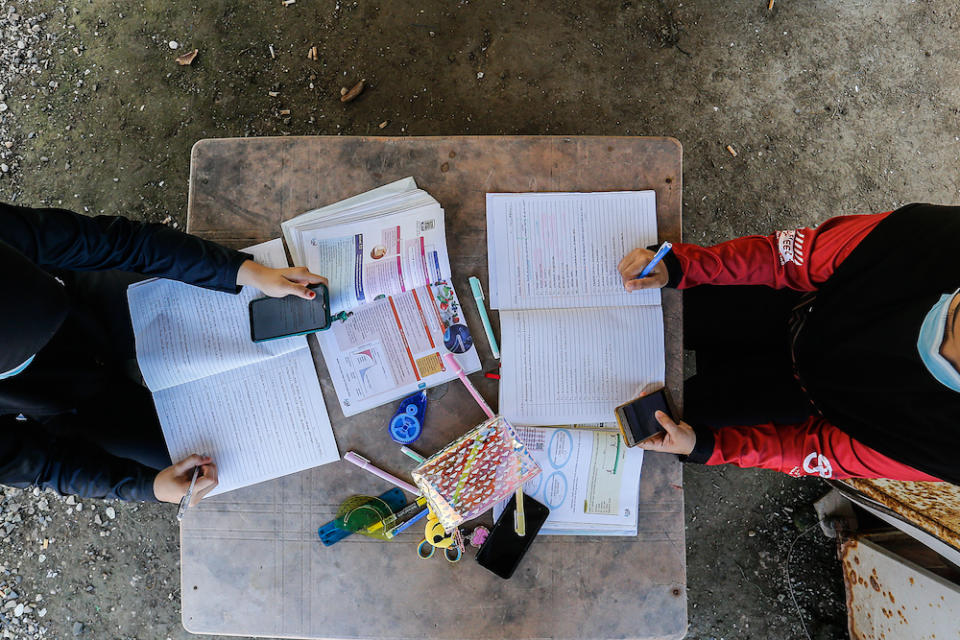Low-spec phones will only deter students from online learning, tech experts and education group say

KUALA LUMPUR, June 18 — Issuing low specification smartphones to students could do more harm than good to their efforts to adjust to the new norm of online learning, according to several tech experts and children's empowerment groups.
Recently, the Perak state government distributed 20,000 Yes Altitude 3 phones to students in the B40 community. However, critics noted that the devices were unsuitable for online learning as they were only powerful enough for basic applications.
The Yes Altitude 3 has low specifications for a current-era device, with a 5.0″ 854×480 pixel resolution display, a 1.3GHz MediaTek MT6379WA processor, 1GB RAM, 8GB of storage, and a small 2,000mAh battery.
Technology experts and a teacher’s association that Malay Mail contacted were roundly critical of the move to issue the low-specification devices to students, which one Perak official purported to be to prevent them from gaming.
Alexander Wong, an author at tech site SoyaCincau said that the Yes Altitude 3 phones were sufficient for basic communication like phone calls, texts and WhatsApp, but noted that students needed to perform more demanding tasks such as video conferencing and running learning and productivity applications.
“The screen is not even in high definition and the battery capacity is just inadequate for today’s standard,” he said, adding that the government should put a minimum specification guideline for smart devices to be offered for online learning.
“I would say a phone with at least 6” screen, 3GB RAM and 32GB storage minimum. In fact, I think it would be better to provide a tablet and there are affordable options priced under RM600,” Alexander said.
Ikhwan Nazri Asran from tech site Amanz said poorly performing smart devices would only add to the burden of students who have been suddenly forced to adapt to online learning due to the pandemic.
Smartphones were also not the best choice for this purpose, he said when recommending tablets or Chromebooks for an acceptable learning experience
“This is because tablets and Chromebooks have bigger screens, better connectivity and also a longer battery life. The range should be between RM400 to RM700 and it must come from an established manufacturer to ensure the quality and performance of the phone.
“Established manufacturers also provide better support to the students, who in turn can make their devices last longer throughout the school year,” Ikhwan said.
Both Ikhwan and Kelvin Tan, co-founder of the Project ID student development and empowerment programme, said that gaming should not be viewed negatively.
They explained that gaming mechanics could be an important aspect to improve students’ motivation for learning and foster creativity.
Ikhwan said tools like Minecraft for Education could drive up creativity among students, and learn new skills like coding, while Kelvin said there was a trend now among educators to use gamification tools to educate the young and keep their interest.
“We constantly find ways to increase learners' motivation and engagement by incorporating game design elements in learning environments,” Kelvin said.
Perak Education, Higher Learning and Human Resources Committee Ahmad Saidi Mohamad Daud chairman recently claimed that the low-quality phones were issued on purpose to prevent students from misusing them.
However, all three argued that smartphones were very personal devices and that students should be trusted to use them responsibly.
Ikhwan added that students must learn to prioritise their lessons first, with Tan adding that the government should reach out to those who have already received the phones to get feedback on how their online lessons are going.
“We should reach out to students who have received the devices for feedback, and get input from them on whether the devices help them with learning effectively.
“If our students tell us that the devices they use are not effective, then we need to hear them out and give them what they need to learn well,” Tan said.
Aside from Ahmad Saidi’s claim, Perak Mentri Besar Datuk Saarani Mohamad also hit back at those who criticised the government for distributing “low quality” smartphones to students, stressing that these were better than nothing.
Related Articles Ex-Perak MB defends successor Saarani over ‘sardine’ remark on smartphones for students Better than no smartphone at all, Perak MB tells critics over ‘low specs’ allegation Yes phone provided under Jaringan Prihatin catches fire during online class


